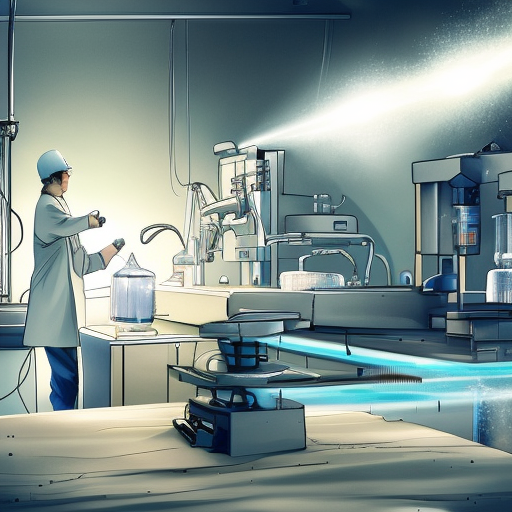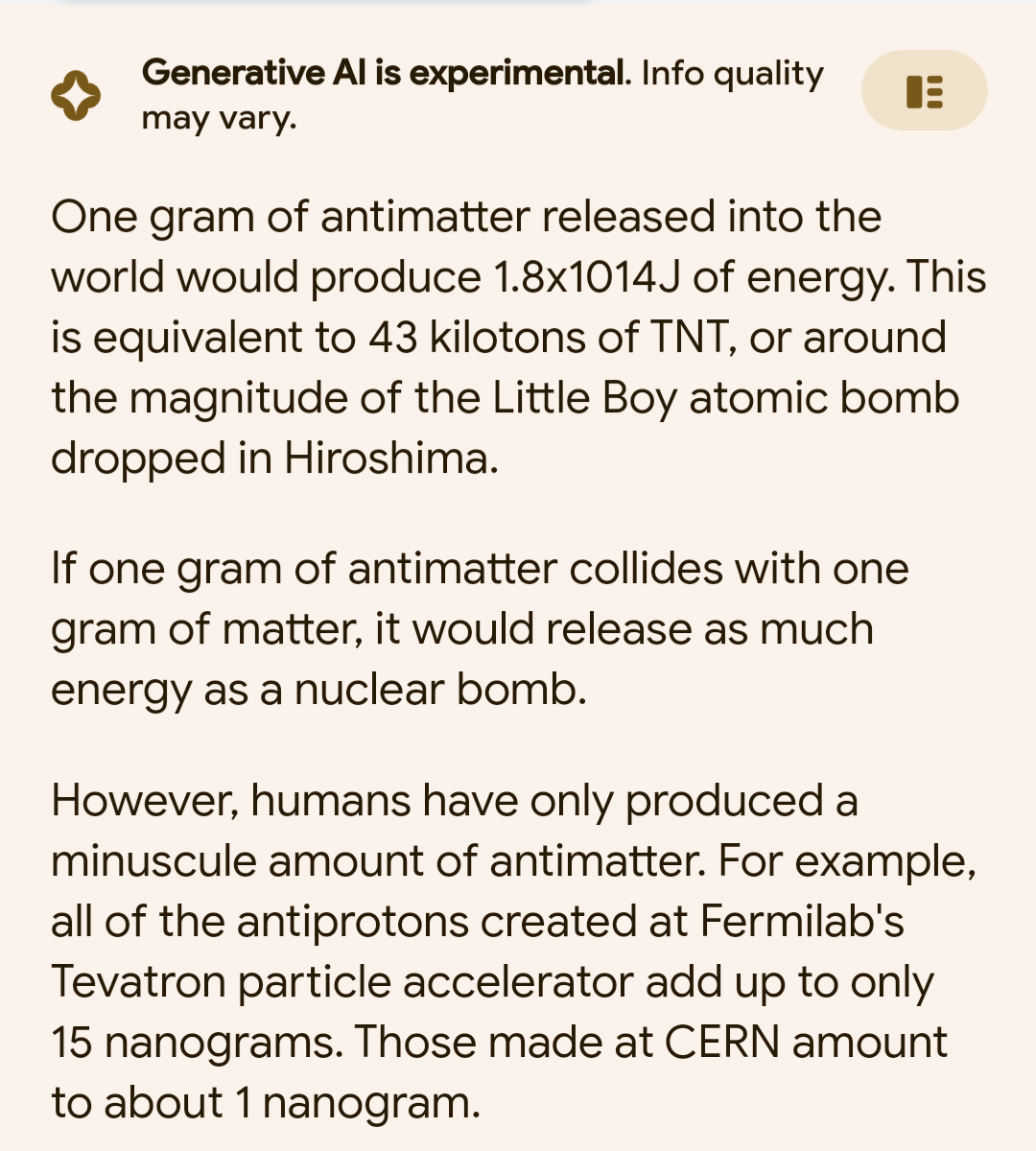
Antimatter, composed of antiparticles, has the potential to revolutionize energy production, propulsion, and other applications due to its highly efficient energy release upon contact with matter. However, producing antimatter on a large scale has proven to be a significant challenge.
Resolution criteria:
This question will resolve to "YES" if, before January 1st, 2040, a substantial amount of antimatter (specifically, at least 1 gram) is publicly and credibly documented to have been manufactured worldwide within a one-year period. The antimatter can be in the form of any antiparticle, such as antiprotons, antineutrons, or positrons.
I will use my discretion when resolving this question, possibly in consultation with experts.
People are also trading
Antimatter might conceivably be used for non-rechargeable energy storage, but it cannot be used for energy production. Even at 100% efficiency, the maximum energy you can get out is however much you put in. No actual physical process can be 100% efficient, but producing antimatter is extremely inefficient, so even storage will probably remain impractical like, forever.
Our current efficiency for producing positrons is 1e-6, and antiprotons 1e-9.
